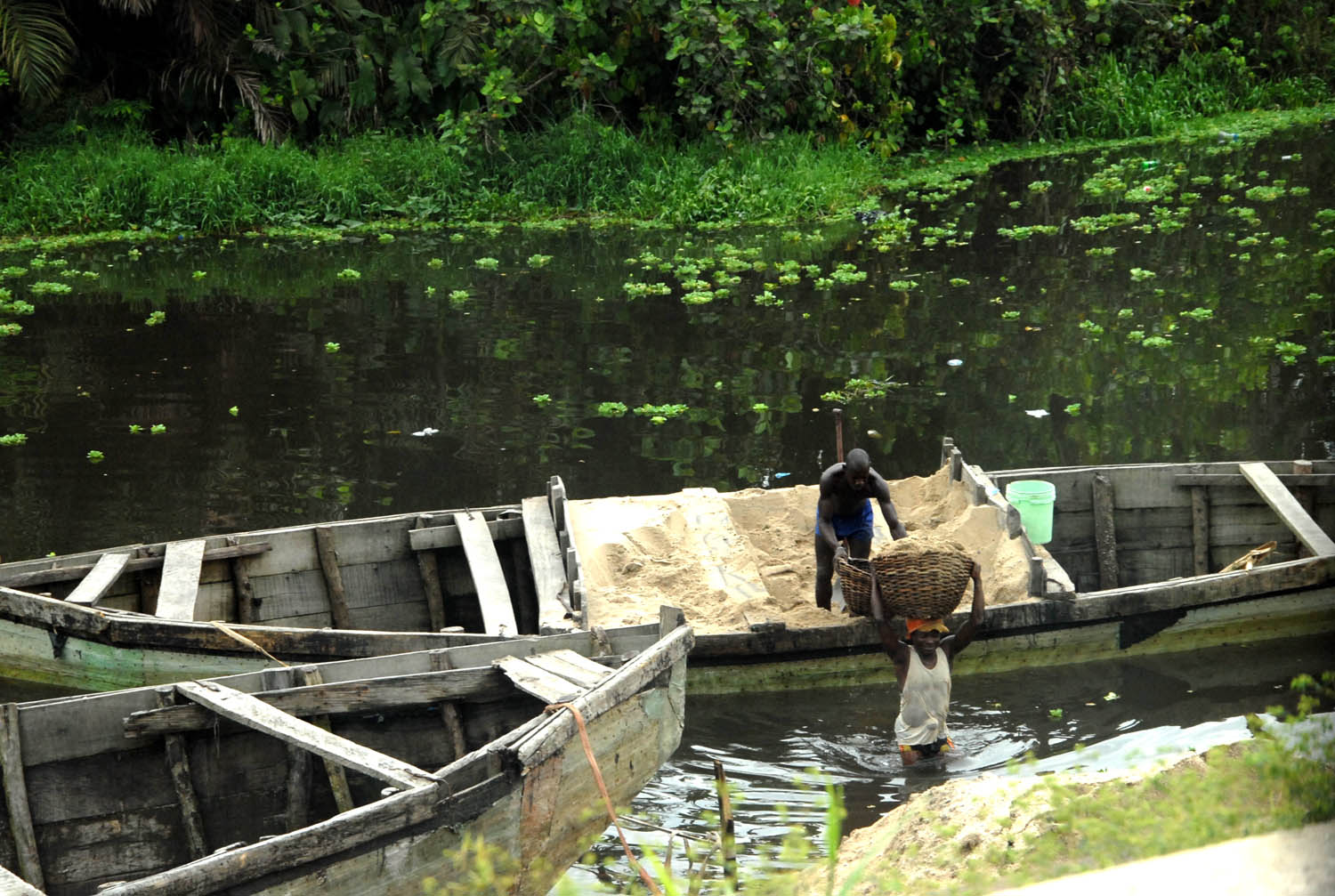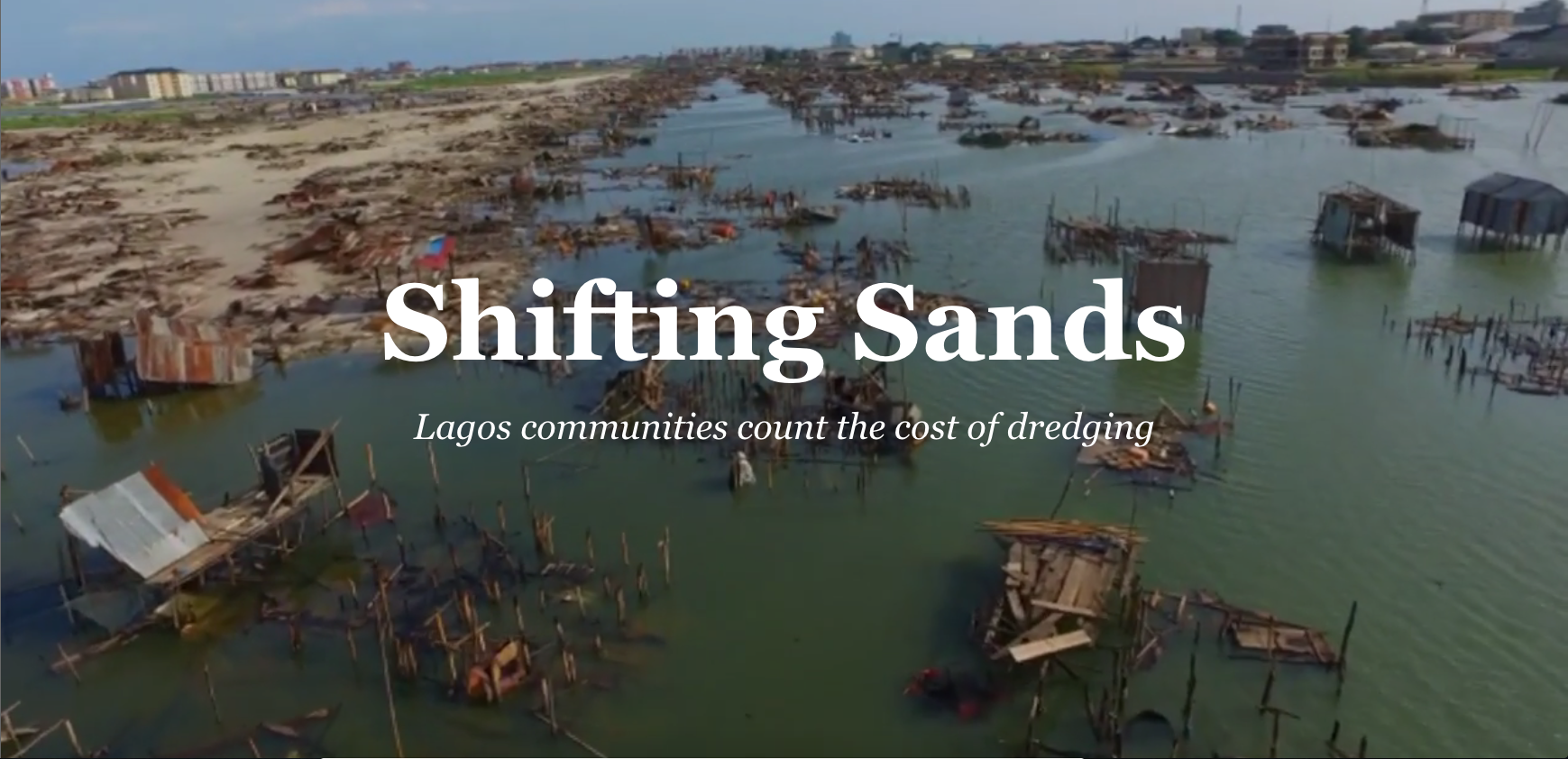
Thomas Ujemeji comes from a long line of fishermen on Bishop Kodji Island, a coastal settlement on the Lagos Lagoon.
Customers come from far and near to buy fresh seafood from the 50-year-old fisherman.
He has a special skill set and he knows it. His traps get the biggest catch every time.
With a smile slowly crawling across his face, Ujemeji says he honed his skills while going on fishing expeditions with his late father as a young boy.
But today was not one of those days that customers would besiege him with requests. When our correspondent got to his fish smoking shed, just a handful of fish rested on a local oven filled with slow-burning, yellow coals.

What the fisherman had on display was incapable of attracting a longtime customer, let alone a prospective one. Ujemeji confessed that he’s fast losing his commercial reputation.
He says a new business in the waterfront community has made a mess of his trade.
Ujemeji says he can no longer fish on the Lagoon front due to the dredging activities in the area.
"If I don't set traps at the deeper end of the ocean, I won't get anything. To do that, I need a boat that can withstand the tides and more fuel to power it."
“The dredging machines have chased fishes to the deeper end. The sand they are harvesting has also polluted the Lagoon and fishes can’t stay.
“The noise from the machines when they are working also disturbs them. If I don’t set traps at the deeper end of the ocean, I won’t get anything. To do that, I need an engine boat that can withstand the tides and more fuel to power it through the long hours that I will be on water.
“I don’t have the money to buy that kind of boat and it is not safe.”
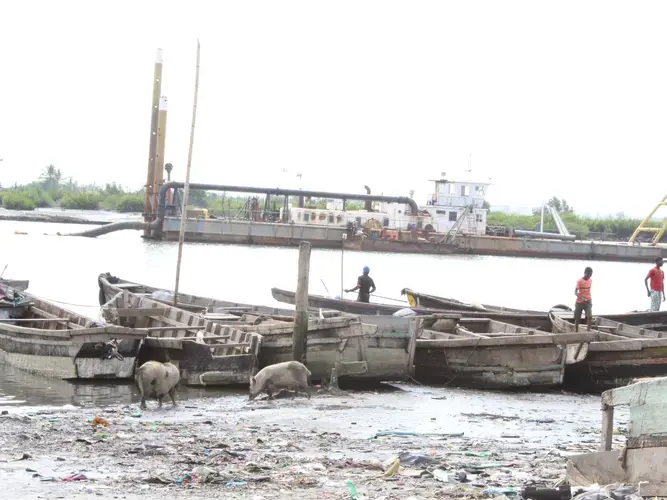
While most people came to the Island to patronise fishermen, many come these days to siphon the sand along its coastline.
Indeed, a massive dredging machine was the most prominent fixture on the island the day our correspondent visited. It was smack in the middle of the Lagoon front.
While residents lament, business is booming for 32-year-old James Adelike, who operates a pay loader that conveys the dredged sand to various destinations in Lagos.
He said, “The price of the sand pumped from the Lagoon is different from the one that is dug with shovels from the shoreline. We sell sharp sand that has no impurities [at] N42,000 per 20 tonnes if it’s to Lekki, Ajah or Badore. The one that is scooped from shoreline is about N20,000 per 20 tonnes…you can find some impurities in those ones.”
“I make N10,000 from every trip and many times I go at least twice a day.”
Adelike says the trade has provided funds for him to start building a two-bedroom apartment in another state where his family resides.
While truck drivers, pay loaders, excavator operators and many other service providers in the dredging value chain smile to the bank, the denizens of Bishop Kodji reek of abject poverty.
The level of squalor on the island with over 150,000 residents is disturbing: it was evident from the 25-minute boat ride that our correspondent took with school children and other artisans to the shantytown; it became clearer on alighting from the canoe.
Joseph Christopher, a fisherman, says life has not been the same since dredging activities began in the slum. Christopher laments that the business which many hoped would bring development to the settlement has brought more misery to residents.
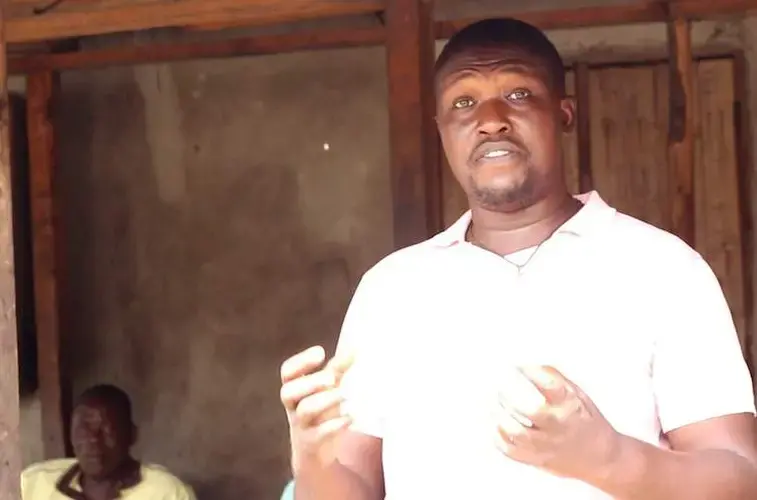
“There are many people profiting from this island. When they want to start operations, they will promise to employ us, build schools and clinics but once they start, they forget us.
"They won’t even employ us. To make matters worse, the dredgers were installed in the areas where we were fishing and they harvested the sand so much so that the anchor and ropes that we use to hold the boat while we set our fishing nets cannot reach the ground. They are now too short.”
Though they are surrounded by water, Christopher says residents must pony up money to buy clean water from the city as water sources in the area have been polluted as a result of sand mining activities.
“We cannot use the water from the well or the borehole. We usually contribute money to vendors who take boats to Yaba or Iwaya to bring sachet water to this island. Many of the things they destroyed cannot be reversed.”
For Christiana Gbetode, who smokes fish, the poor fish harvest has forced her to consider an unlikely alternative.
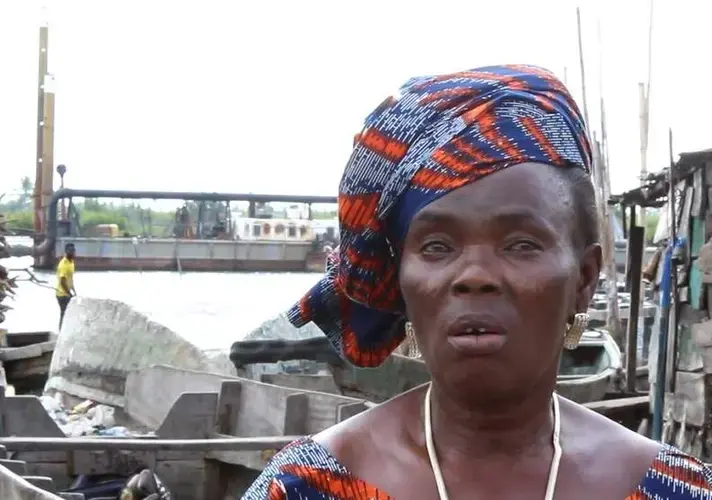
The head of the fisherwomen on the Island confides in our correspondent that not only does she buy farmed fish from local breeders in Badagry and Epe areas of the state, she also augments her supplies with imported fish.
Pointing at the fishing boats lying idle at the community’s jetty, Christiana says, “Before now, the boats used to be filled with fishes when the men come back. I used to buy at least 40 buckets, but now you get at most two buckets of fresh seafood after toiling for hours.
“To keep the business, I buy from local farmers at twice the price and I smoke imported fish. I am losing customers because my fish is the same price as those smoking in the city.”

The word dredging sends shivers down Whesu Gatson’s spine. For him, the word is synonymous with destruction of livelihood and properties.
According to him, many houses collapsed into the Lagoon because of the flooding incidents that occurred in Gavei Kodji, after sand mining began in the community.
The farmer turned boat operator says besides the houses that caved in, some farmlands were washed into the Lagoon in the aftermath of a flooding incident aggravated by the excavation of sand from the waterfront settlement.
He says, “I used to plant maize and cassava with a lot of vegetables but once they started packing sand from the coastline, the land began to get soft and muddy. If you plant anything today, the next day, water will wash it away. The soil became weak.”
Gatson pointed at some tumbledown huts close to the Lagoon front as some of the homes that collapsed when mining activities became more intense in the coastal community.
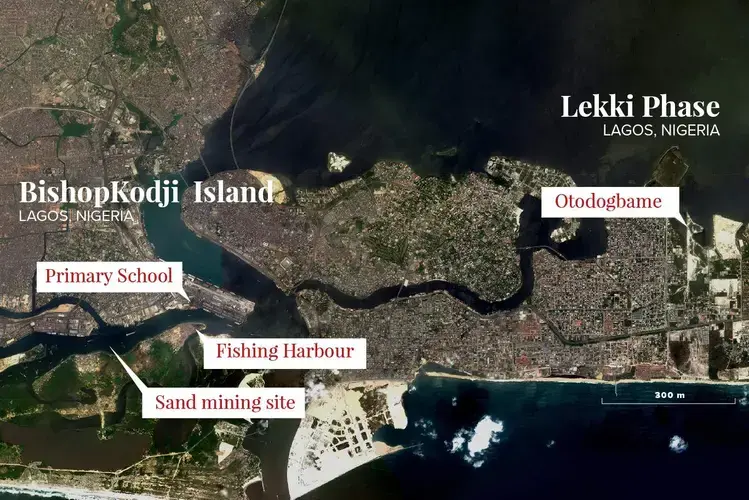
Environmentalists say that unchecked mining and dredging, which weakens seabeds and depletes subsoils, could increase incidences of building and structural collapse in Lagos.
The Director-General of the Nigerian Conservation Federation, Mr. Adeniyi Karunwi, who defines sand mining as the process of removing sand and gravel from a particular location mostly for the construction of buildings and roads, warns that insatiable demand for fine sand threatens irreversible damage to marine lives and the environment.
He identifies coastal and soil erosion, loss of aquatic lives, formation of sinkholes, loss of biodiversity, and soil contamination resulting from leakages of chemicals into the soil as some of the adverse environmental impacts of the trade.
“A study by the Nigerian Institute for Oceanography and Marine Research revealed that uncoordinated activities by miners and dredgers has caused depths of almost six metres into the seabed as reflected in the Banana Island to Third Mainland Bridge axis,” says Karunwi.
The environmentalist notes that a recent biodiversity survey by a team of ornithologists along the Lagoon in Sangotedo and Badagry areas of the state indicated an unprecedented proliferation of dredging activities — a situation he says thrives due to poor coordination and regulation.
The conservationist says, “The relevant government agencies responsible for stemming this tide should put a halt to it before it becomes a monster that would eventually consume us.
“Dredging in some places has been largely responsible for the loss of breeding habitats for sea turtles, which depend on sandy beaches for their nesting and other biodiversity.”
From Lagos to Dubai, sand is a highly sought after resource.
Globally, there is a huge demand for sharp sand which is dredged from the sea or mined from its shorelines for real estate purposes.
Lagos, a state in southwest Nigeria with more than 50 coastal communities in Lekki and Epe, Ojo and Badagry as well as Amuwo-Odofin and Apapa areas, is a preferred destination for sand miners.
It is trade knowledge that fine sands, excavated from Lagos coastlines, are exported to countries such as the United Arab Emirates.
The waterfront business booms with an increasing need for housing for over 20 million Lagosians.
It’s been estimated that Lagos consumes an estimated 40 million cubic metres of sand per annum for building and construction projects.
While the business generates great profits for urban property developers, its impact has brought despair upon residents who have had to deal with the polluted waters, collapsed houses, depleted lands and flooding incidents these activities leave in their wake.
As fine sand is taken from the coastlines to provide housing for urban dwellers, many more are rendered homeless in the affected areas.
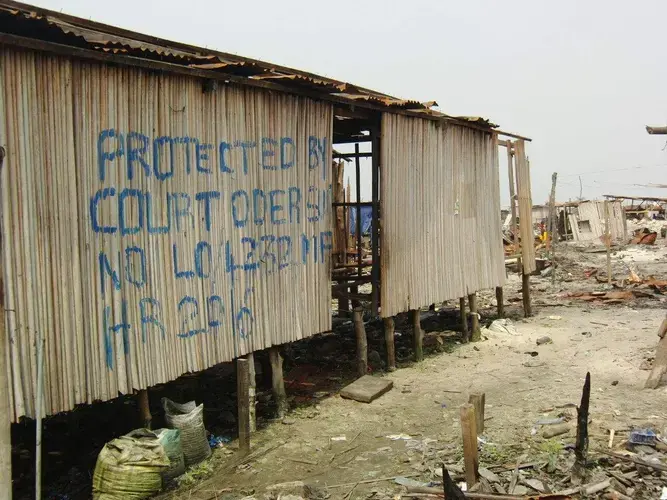
Government reads the riot act
Worried by the increasing menace of these activities, the State Governor banned dredging activities in February.
This was after a communal clash in a sand mining site in the Bariga area of Lagos reportedly led to the death of an elderly woman in the settlement.
The Commissioner for Water Front and Infrastructure, Mr. Ade Akinsanya, who relayed this directive, however admits that the majority of the miners were operating illegally without the appropriate licence.
Akinsanya said, “All sand dredgers in Lagos State should stop operations immediately. The idea is to ensure adequate security of lives and property in the state. They need to renew their operational permit annually, but majority of them have not renewed it for many years.
“The state government and the National Inland Waterways Authority are the licensing authorities to give directives on such operations on the waterways.”
"[The miners] did not consult anybody, and we woke up to find their equipment on water. We are fishermen trying to make a decent living; nobody should come and spoil our land."
Boat Operator Soji Vvede
Despite the stern order from the authorities, sand miners continue their business, especially in remote areas far from the watchful eyes of the government.
For instance, dredgers were still operating on the Lagoon front at Ogogoro Island when our correspondent visited the community in April.
Knowing the ugly fate that had befallen their neighbours, the residents alerted authorities to ensure that the operators comply with the order.
According to a boat operator, Mr Soji Vvede, some miners appear like thieves in the night to scoop sand from the waterfront settlement. “They did not consult anybody, and we woke up to find their equipment on water. We are fishermen trying to make a decent living; nobody should come and spoil our land,” he says.
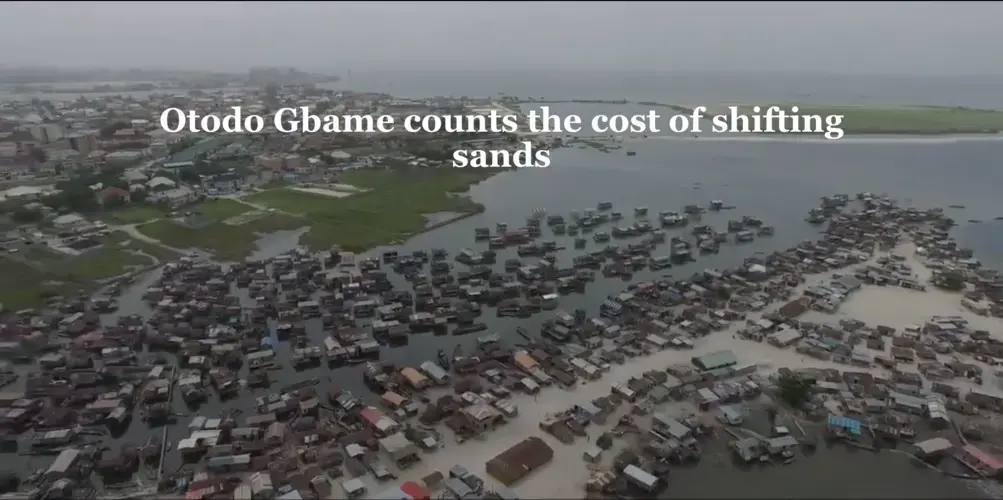
Otodo Gbame, a small fishing settlement behind Lekki Phase 1- an affluent area of Lagos - was leveled to the ground by security agents in March.
The police invaded the coastal community and set alight more than 1,000 homes on water and the ground, leaving 4,700 residents homeless and stranded.
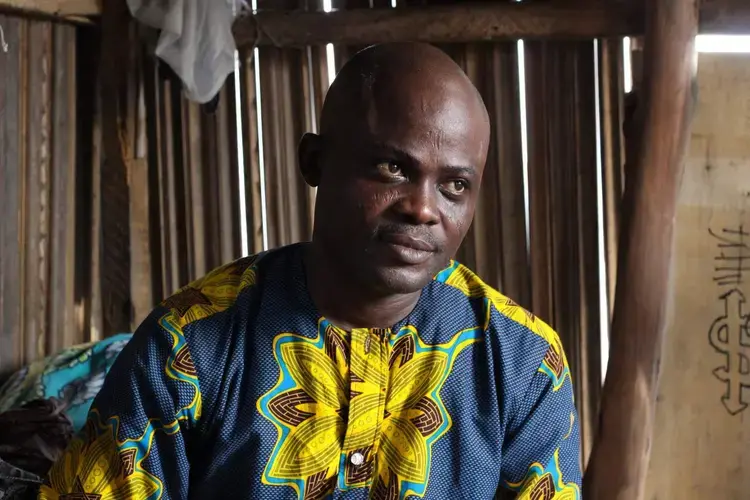
While the state government has justified this action by saying the stilts structures in the community were incongruous with its mega-city plans for Lagos, Celestine Ahisu, the community’s youth leader, argues that residents were evicted to allow sand dredging and filling activities to thrive.
Besides being situated in a prime waterfront location, Otodo Gbame has one of the longest expanses of coastlines in Lagos, which makes it an attractive destination for sand dealers.
Its proximity to Lekki and Ajah, areas where real estate development is at its peak in Lagos, makes it a dredger’s delight.
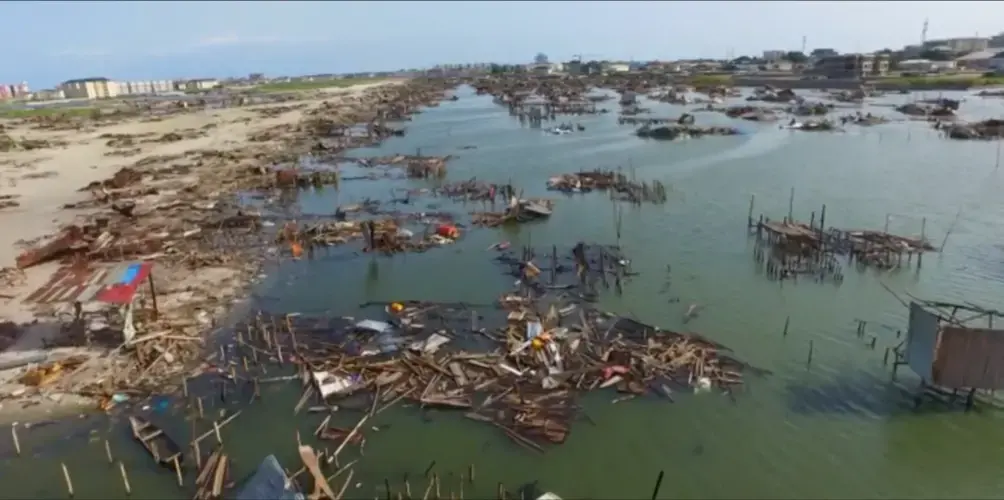
Our correspondent, who accessed the community by water before it was demolished in March, spotted at least three pieces of dredging equipment on the area’s waterways.
When she tried to take pictures, the boat operator warned that sea guards often confiscate cameras of those who try to capture these operations.
Though she had been forewarned, our correspondent was not prepared for the images of carnage she saw inflicted upon the community. Over 500 houses made from bamboo and wood had been damaged. The smoke from the torched structures still pervaded the air.
Toddlers ran towards passengers thinking they had brought food and clothing items.
The boat operator, who resides in the fishing slum, told passengers that most residents had lost their belongings, food items and money when the community was attacked by hoodlums some days before.
Ahisualso confirmed this. According to the youth leader, the community suffered bloody attacks when residents protested dredging operations in the area.
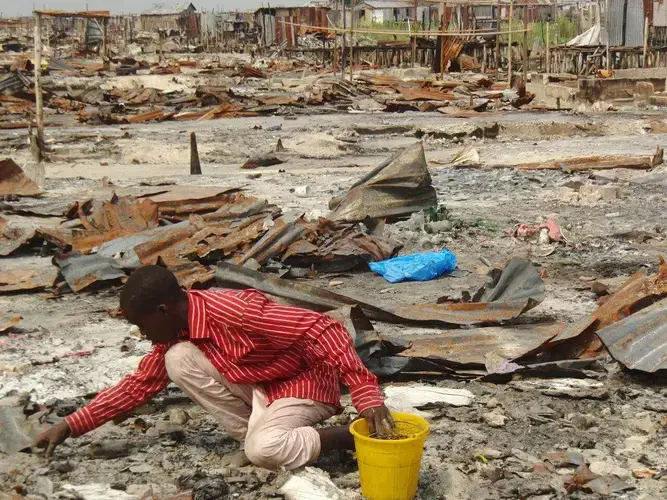
“They started dredging the shoreline of Otodo Gbame in 2014. Nobody consulted with us, we just saw their equipment on the Lagoon. Around this period, about 30 houses fell into water.
“The waterfront had also become too shallow for us to fish and the wells in the area were polluted. As the community leader, I went with our Baale to Oba Elegushi to complain.
“Some months after, a group of unknown men came to give us an eviction notice and said we should leave the land within seven days because they wanted to take sand away from the community.
“We didn’t even take them seriously because the notice was not signed. But after the expiration of the notice, they came back with over 70 thugs to start burning the houses. When we started putting out the fire, they got angry and began shooting at us.
"We reported the case to the police and for another three years we had some respite but they did not stop dredging.”
But the truce did not last, according to the Baale, Mr. Dansu Hunkpe, who has now been evicted from the floating community. He says the community was attacked at least three times within three months in 2016.
“One of them, who identified himself as Wasiu, said I should tell my people to leave the area because they were disturbing them from taking sand. I said No! Not in this community. He was always coming with hoodlums to intimidate us.
“After another round of attacks that led to the death of a pregnant woman and her child, trying to escape via boat, I went to the Oba of Elegushi to complain again and he promised the issue will be addressed.
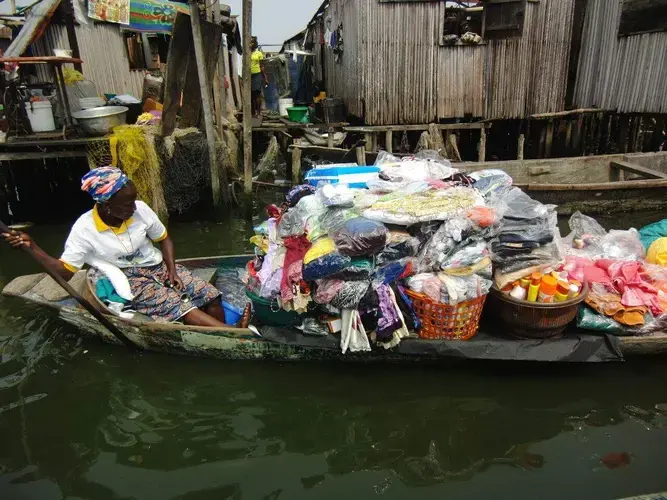
“Even government officials came to Otodo Gbame to assess the whole situation but we never heard from them again.”
But instead of wading in, Hunkpe says the state government served the community an eviction notice in November.
“As if it was planned, I was arrested November 7th and remanded in Ikoyi Prisons the same day we got served the notice. I was released some few days after. On getting to Otodo Gbame, half of the structures were in ruins. Some people got burnt with their houses, most were injured.”
The head of the community says while they were rebuilding and waiting for the court judgment on the notice given, the state government ordered that the community be demolished.
Commando style and to the horror of many Lagosians, Otodo Gbame and all the structures in it were set on fire by security forces on March 25. Little thought was given to the safety of the residents who were ambushed overnight.
According to head of the community, who now squats with other evictees in Makoko, more than 30,000 residents were affected by the exercise.
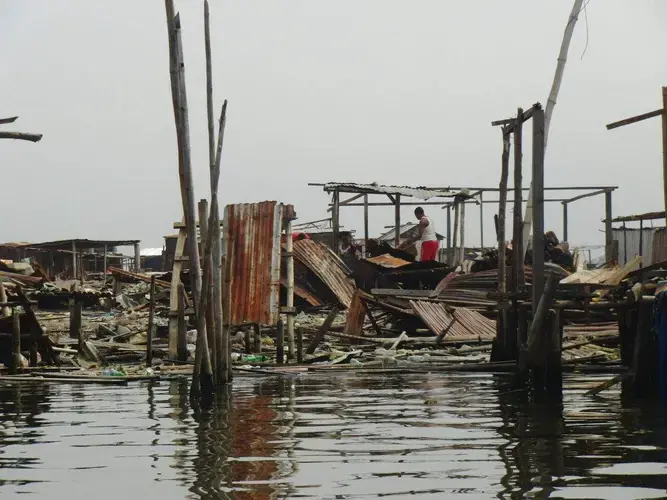
Though the state government ordered that the community be demolished, Ahisuand Dansu seems to blame the royal family, the Elegushis, for the crisis.
Hunkpe says, “They chased us from our ancestral homes like dogs. A place we have known all our lives. We don’t know what we have done to them, they were loathe of seeing us.
“We were living here before the big buildings came. Maybe because our houses were made of bamboo but that is what we could afford, we don’t have money to build block houses. More so, we are fishermen, we live on water.”
Celestine says they want their community back. But this may seem like a tall order. Our correspondent was denied entrance into Otodo Gbame when she visited in April.
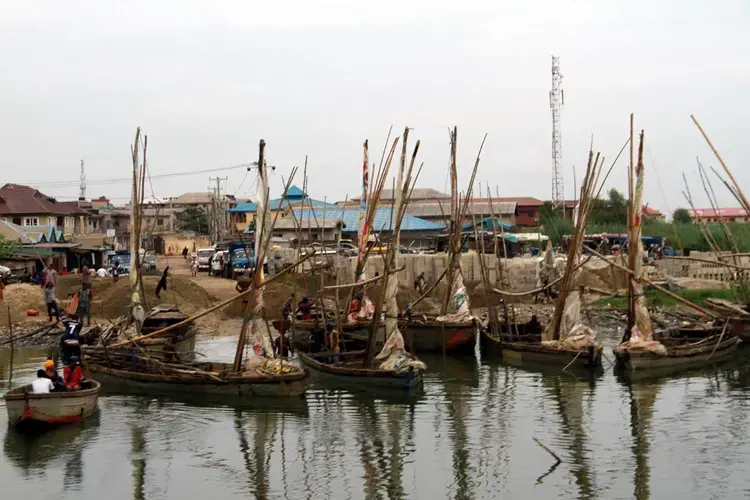
Forced eviction is a violation of land and property rights
Aside from its environmental impact, the co-founder of the Justice & Empowerment Initiative, Megan Chapman, notes that sand dredging and mining often leads to the forceful eviction of residents in affected communities.
Chapman, who heads the legal team representing 15 waterfront communities in the state, says even though operators are meant to carry out an Environmental Impact Assessment in addition to obtaining various forms of licenses before they start their operations, many of them do not.
“There are two purposes of dredging. One is to remove sand to allow boats to move freely on waterways, but most times it is to harvest sand for commercial purposes which is basically mineral extraction. With both activities, you are looking at if they have the right to do what they are doing.
“The reality is that many involved in dredging activities are not licensed by the relevant agencies and the few who are, have one and not the other. In most cases that we have investigated in waterfront communities, an EIA has not actually been done and this is required by federal law.
“Another case we see is when dredging is done on the waterways while expanding it because they want to take over it for real estate purposes. But the question remains: Do they have the right to do so and that ties to who exactly owns the land. We usually find out that these questions remain unanswered, making such situations a violation of the law.”
Chapman argues that dredging and the consequent land grab played a great role in the recent demolition of Otodo Gbame.
“When sand dredging started in Otodo Gbame, the residents did not realize it could lead to their eviction and the land being taken from them. So, a year ago, we were raising alarms about how dredging and sand filling activities in the area was affecting their fishing and quality of lives.
“There was a protest to Alausa and the state government intervened and they stopped for a time. But in November, the same people attacking the community came back with the police to demolish the community.”
"So many times, the government does not challenge the operators. They say once the operators have got the appropriate license they are ok with it."
Megan Chapman, Justice & Empowerment Initiative
Chapman says contrary to many beliefs, waterfront residents have the right to protest and question any activity that affects their livelihoods and properties even when the concerned authorities have been licensed.
“In the Niger Delta, we have oil spillage, in Lagos we have dredging of sand. If an oil company is licensed but there is an oil spill in the community, the company is liable to answer to those damages.
“There is a principle of law that says when there is a wrong, there should be a way of correcting it or making it right. For instance, if you have owned or occupied a parcel of land in Otodo Gbame, you have aright to ensure the stability of the land.
“The way you met the land is the way it should stay. If your neighbours are doing something that undermines the stability of the sub soil, that is a trespass to property and it’s under the land law.
“Even if you’re not the owner of the land but you have a structure on it, let’s say a fishing boat or a house, and something is done to cause damage to it, it’s also a trespass on property. If you have evidence and pictures, you can lay claim in court.”
However, Chapman says it is unfortunate that most cases of land dispute and infringement on property rights in Nigeria end up in court, as government that should address these issues often put up a defence.
“So many times, the government does not challenge the operators. They say once the operators have got the appropriate license, they are ok with it. Often the community with evidence must go to court,” she adds.
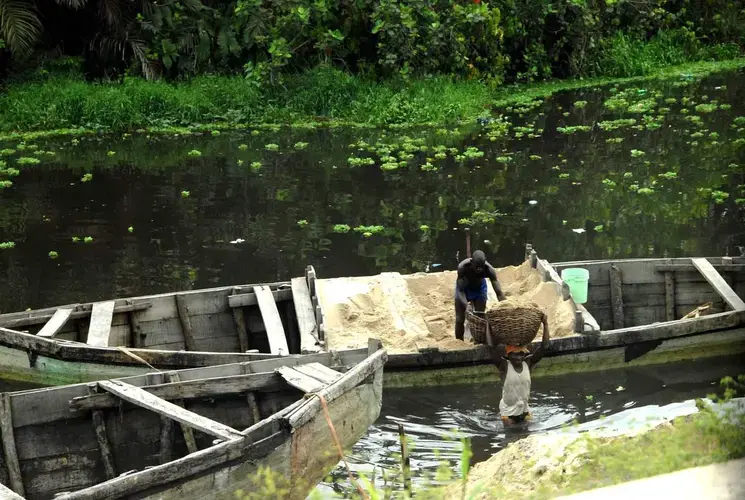
We don’t tolerate illegal activities
An officer of the Dredging and Sand Dealers Association of Nigeria, Dr. Edmund Chilaka, says that the association does not tolerate illegal mining or dredging operations.
Chilaka, who is also the founder of Dredge Skills and Marine Training Centre in Lagos, says members are experts who are abreast with the best practices in the business.
He, however, maintains that ensuring that there is sanity in the sector lies primarily on the shoulders of the state and federal authorities.
“We do not tolerate or condone any form of illegality and our members are highly trained experts. I would say regulating the industry is in the hands of state and federal agencies, which too many of them are already doing.”
Development, an emerging threat to coastal settlements
Sand mining and dredging are a few of the challenges that slum dwellers contend with. Many of the waterfront communities our correspondent visited lacked basic social amenities. Fishermen lamented that seafoods were rotting away in Bishop and Sabon Kodji Island as the community has no power supply.
Secondary school pupils also have to take canoes to the city since some of the slums did not have such educational facilities. The residents say they are often scared of advocating for these amenities from the authorities who may respond with eviction notices.
As the United Nations Human Settlement Programme estimates that one in eight people live in slums today, experts say demolitions and eviction threats will no longer be a viable solution to addressing these housing challenges.
In Nigeria alone, informal settlements accommodate more than half of the nation's urban residents, states the 2015/ 2016 Slum Almanac.
The UN Habitat report titled "Tracking Improvement in the Lives of Slum Dwellers" notes that with 50.2 percent of Nigeria's urban population living in slum conditions, informal settlements in cities like Lagos can no longer be wished away.
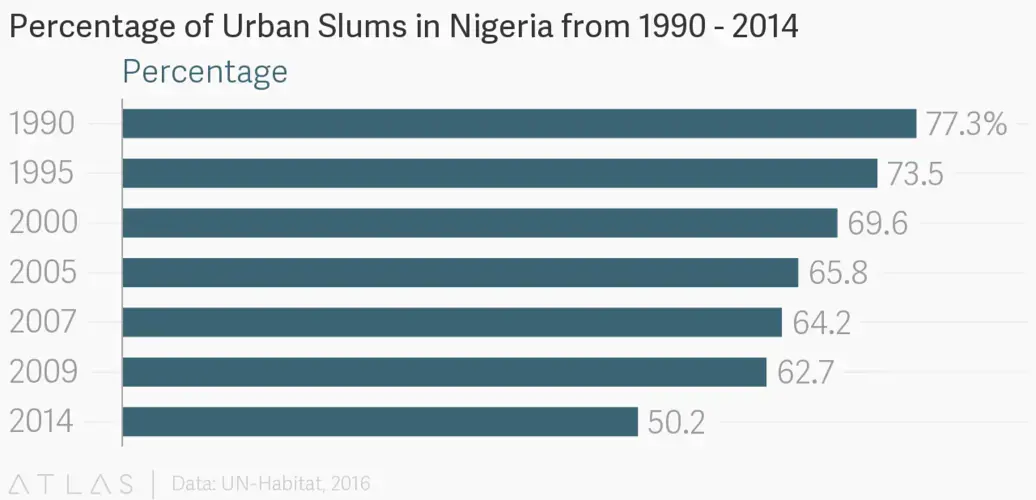
Rather than push them away, Chapman says government should innovatively upgrade the social amenities in these settlements and also proffer humane solutions to the challenges they present.
“Yes, you want to develop your city but when you push people away and oppress them because they are poor, they only settle somewhere else and the problem gets worse,” she says.
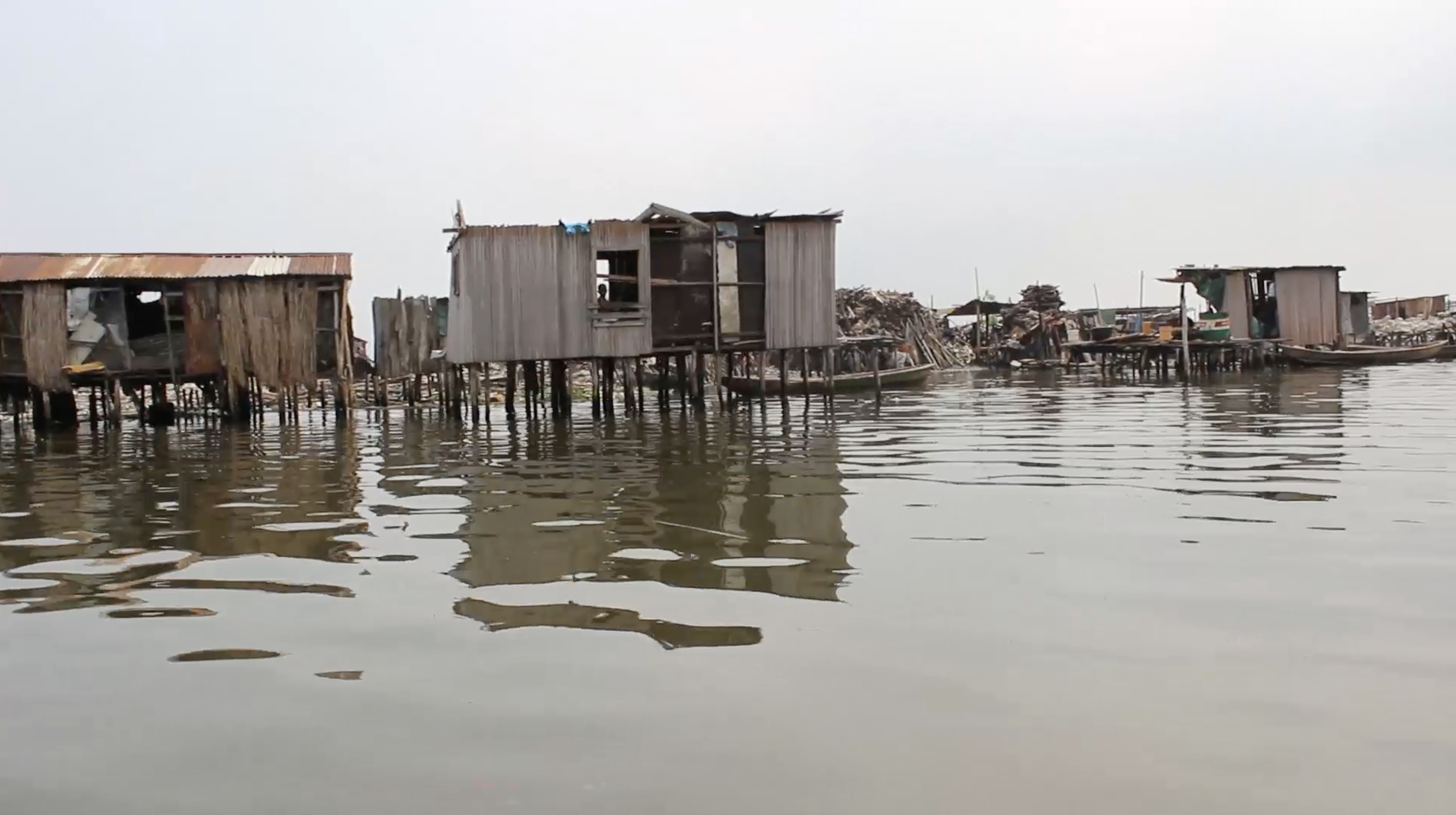
Education Resource
Meet the Journalist: Bukola Adebayo
In this video, Bukola Adebayo discusses the environmental impact of sand dredging along Lagos...


